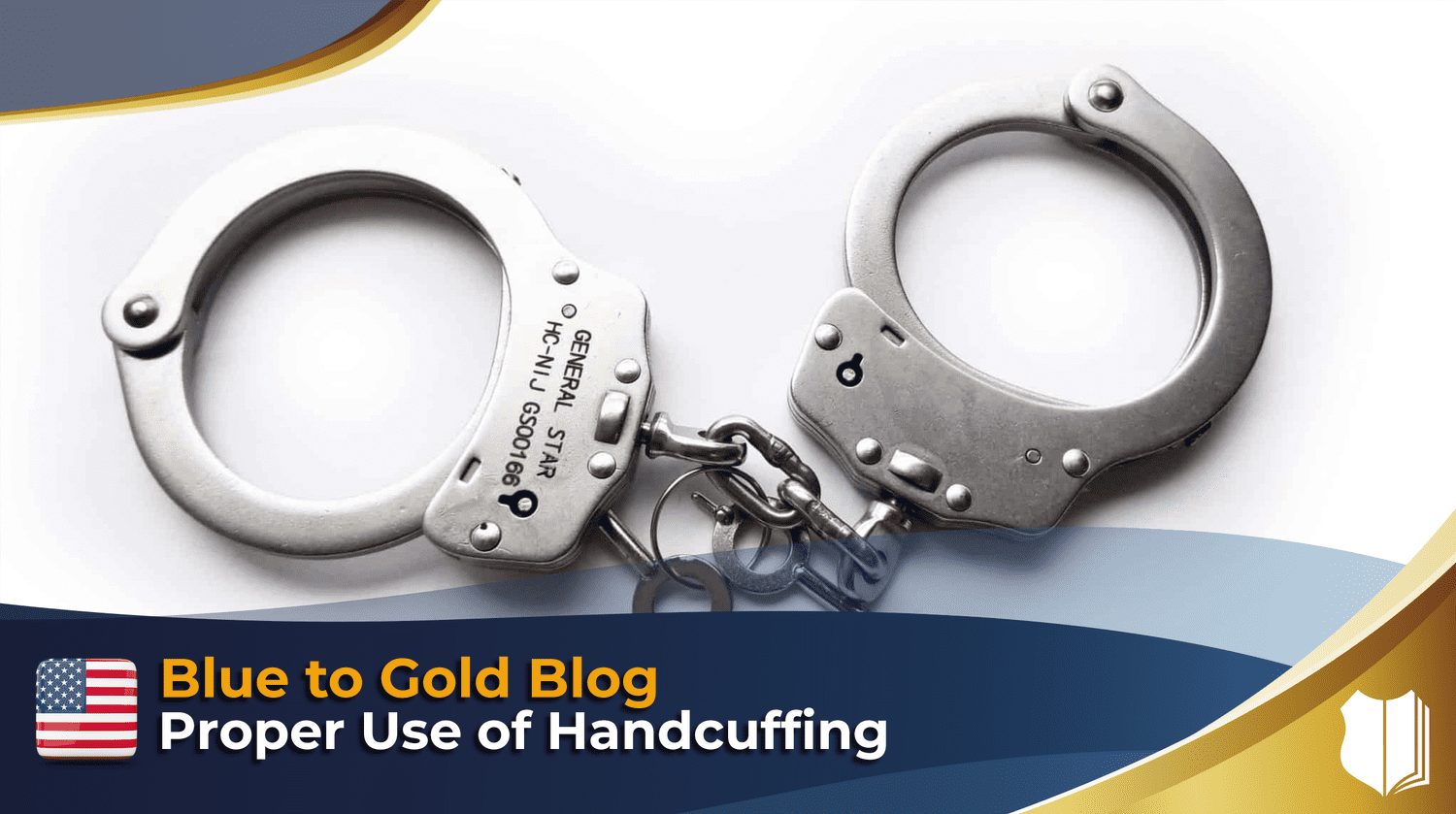Let’s start with some case law.
The Ninth Circuit has held that you are allowed to use handcuffs during an investigative detention or traffic stop, if you can articulate it. A good case on this is United States versus Taylor, Ninth Circuit 1983.
They basically held that the use of handcuffs, if reasonably necessary, has to be articulated, and while substantially aggravating the intrusiveness of the investigative stop or traffic stop, do not necessarily convert a Terry stop into an arrest necessitating probable cause.
Well, what is the consequence? If you have an improper use of handcuffs, there are really three things that can happen. Number one is you could have what they’re kind of talking about here, which is what’s called a de facto arrest. A de facto arrest is when based on the totality of circumstances, the court believes that the person was essentially arrested.
Well, what do you need for a valid arrest? You need probable cause. So if you have probable cause, then you have a valid arrest. If you don’t have probable cause, and you have an unlawful de facto arrest, then we have consequences, like suppression of evidence and so forth.
The other consequence could be an excessive force claim, which we are going to talk about as well. If officers do not properly articulate the use of handcuffs during an investigative detention or a traffic stop, that person can come back and say that you unlawfully used handcuffs, and they can try to go after you for a civil rights violation.
And then finally, there are Miranda issues. If handcuffs are improperly used, it can cause what’s called an arrest-like custody. You may not want to put the person under arrest. Maybe you’re just doing an investigative detention. You’re not looking to arrest them, you maybe don’t have probable cause. But even despite those facts, if you improperly use handcuffs, it could create a situation where now Miranda is required, because a reasonable person would feel that they’re under arrest. The constraints are in line with a formal arrest.
So those are three consequences if we don’t use handcuffs appropriately: de facto arrest, excessive force, or Miranda-like custody.
Now, I want to go over a policy. This is Las Vegas Metro PD Policy 3.110, “Use of Force.” The policy is actually in my opinion, very, very well written because it gives you lots of examples where handcuffs are appropriate during investigative detentions or Terry stops, where one or more of the following factors are present. They are appropriate only for as long as the circumstances exist, not to exceed 60 minutes. Otherwise, we turn that into a formal arrest.
So articulate facts that the subject is physically uncooperative; that is, a fight situation. What about facts that the subject’s actions may present physical danger to themselves or others if not restrained? Reasonable possibility of flight based on the actions of the subject; these have to be articulated. Why do you believe that this particular person may take off running on you? Maybe we need some facts about why this person may be currently armed, which would obviously allow a patdown as well. The stop closely follows a violent crime and you have reason to believe that this person was involved in it. Suicidal subjects, during a search warrant service, if you can articulate it’s reasonably necessary. Persons being transported to detox facilities, and so forth.
But these are the main things that your department is looking for when you’re going to put handcuffs on someone. Now, the other thing that I want to mention is; if they can go on, they have to come off if you don’t have those reasons anymore. Sometimes cops will believe that a person may be a danger or a flight risk, but as they start talking to them, they realize that those facts no longer support handcuffing.
I want to give you a brief case out of the Eighth Circuit. It’s a case in 2021, called Hanes versus Minnehan. Here is basically what happened. An officer saw the suspect stop his car and have a hand to hand transaction with a homeless person. He thought basically that one of them was selling drugs to the other. So the officer stops the car. So far so good.
According to the court this was a high crime area, and the cop articulated reasonable suspicion for the stop, got the driver out and put him in handcuffs. Then he started talking to the driver, and he’s composed, he’s calm, he explains that he actually did not purchase drugs or sell drugs. He just gave this homeless person some money.
He offers to have the car searched by officers, he consents to a search. The cops pat him down and don’t find anything on his person or in a consensual search of his pockets. They run him, he has no criminal history and so forth. This whole time, he’s in handcuffs. Other officers show up, they wave them away. And they just keep him in handcuffs.
The court found that the driver was approximately held in handcuffs for five minutes too long. Let’s say the whole stop was about 15 minutes long. Five of those minutes they found, was an unlawful use of handcuffs. And are you ready for it? No qualified immunity!
In other words, the court found that this was a violation of the Constitution. And it was clearly established under case law out of the Eighth Circuit. I think you’re going to find that same situation in the Ninth Circuit too. Where courts are looking at these detentions and where the cop is not able to articulate keeping a person in handcuffs for an investigative detention, that can cause legal problems for you.
So at the end of the day, be safe out there, but articulate why you’re doing what you’re doing. And also remember that you have a legal obligation to continually reassess your constitutional intrusions. So if handcuffs go on, they can go on quickly, but they may need to be quickly taken off if the facts change. I hope this helps you get it right every single time. Please keep your questions coming.








